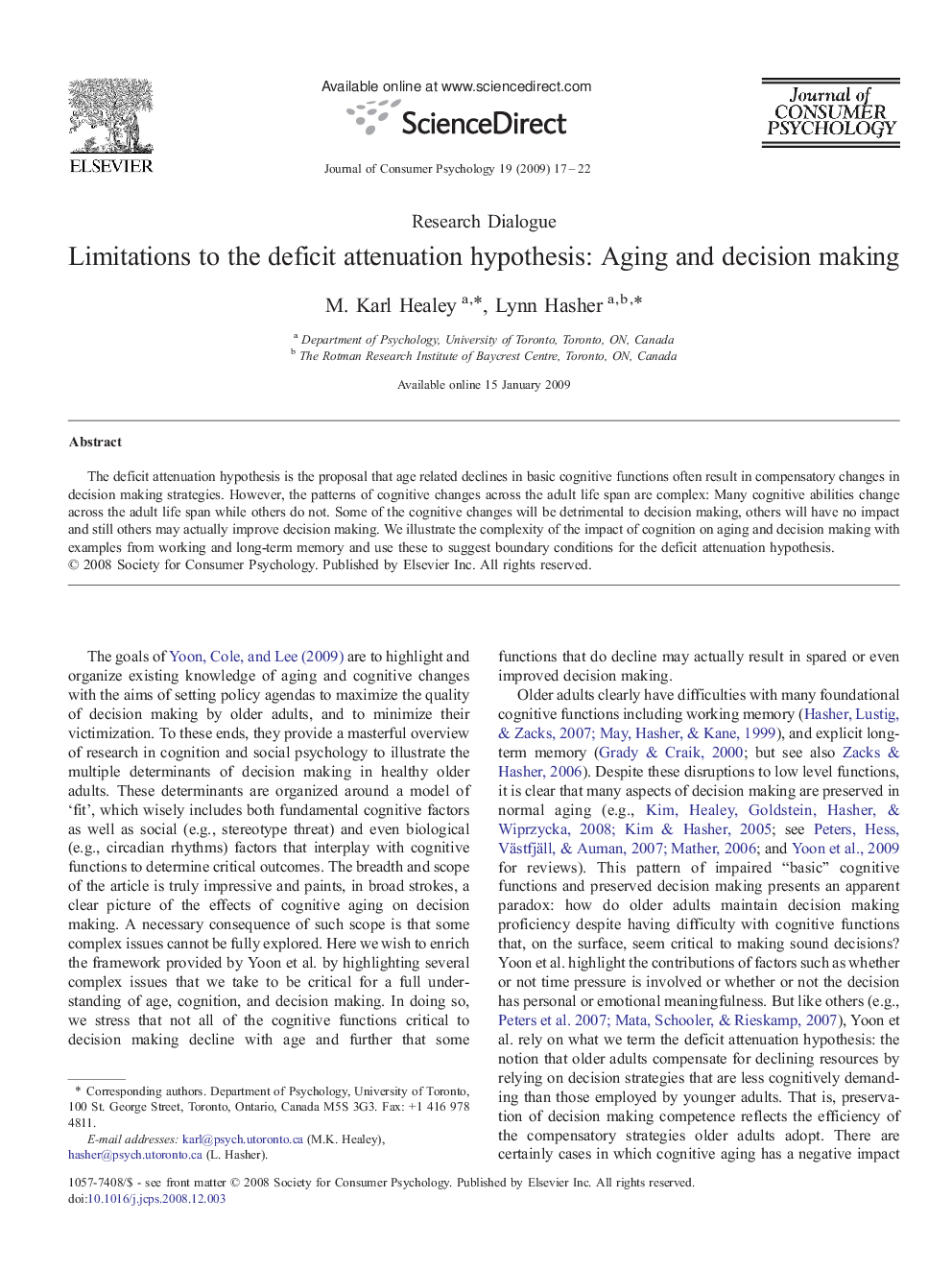| Article ID | Journal | Published Year | Pages | File Type |
|---|---|---|---|---|
| 882530 | Journal of Consumer Psychology | 2009 | 6 Pages |
Abstract
The deficit attenuation hypothesis is the proposal that age related declines in basic cognitive functions often result in compensatory changes in decision making strategies. However, the patterns of cognitive changes across the adult life span are complex: Many cognitive abilities change across the adult life span while others do not. Some of the cognitive changes will be detrimental to decision making, others will have no impact and still others may actually improve decision making. We illustrate the complexity of the impact of cognition on aging and decision making with examples from working and long-term memory and use these to suggest boundary conditions for the deficit attenuation hypothesis.
Related Topics
Social Sciences and Humanities
Business, Management and Accounting
Marketing
Authors
M. Karl Healey, Lynn Hasher,
